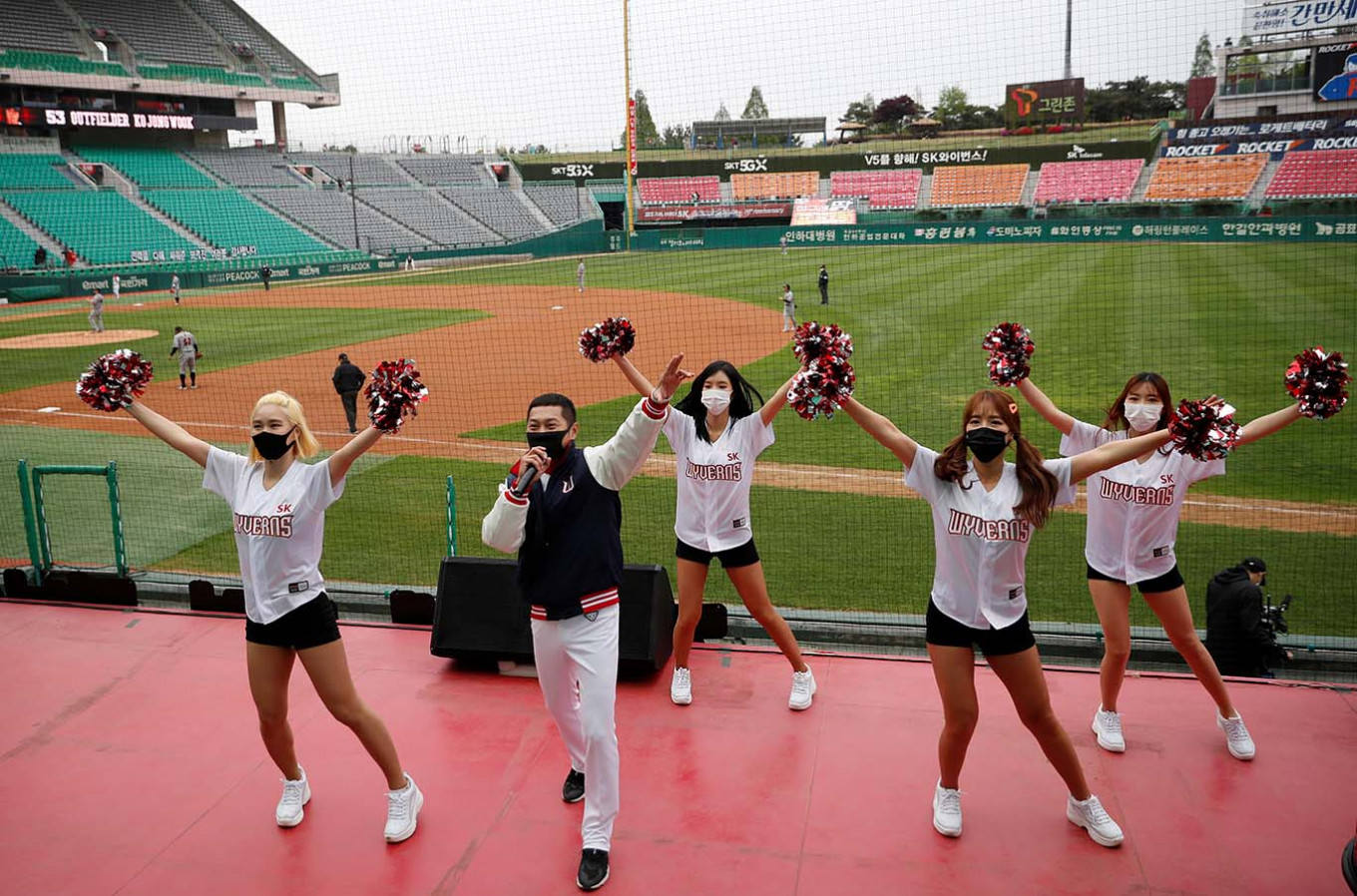Popular Reads
Top Results
Can't find what you're looking for?
View all search resultsPopular Reads
Top Results
Can't find what you're looking for?
View all search resultsThe post-COVID world of sports
The sports industry has been among the most-affected during the COVID-19 pandemic.
Change text size
Gift Premium Articles
to Anyone
"Brace yourself! The MU fans are coming to anger Liverpool fans." This is just among colorful banter during Manchester United's match against Liverpool last January. Don't you just miss funny, heated exchanges between soccer fans like this?
When our favorite team won, we cheered and celebrated, perhaps with a secret bet between friends. When they lost, we felt ashamed and sad, so much that we refrained from logging onto our social media accounts for a few days.
But since the COVID-19 pandemic, sports matches, with all their adrenaline-inducing action, are no more. Sports are among most-affected by the pandemic.
Then when it is over, will the world of sports return to normal? Or will it adapt to the "new normal", a phrase we often hear these days. What will change? Here are my two cents on the post-COVID world of sports.
Athletes go online
Some athletes have created online content to interact with sports enthusiasts and fans alike, such as by holding live chats, like that hosted by tennis players Roger Federer and Andy Murray. Airbnb created "Airbnb Talks with Olympians", presenting a paid session where you can listen to your favorite athlete's stories, tips on working out from home and motivational sessions with Olympians.
Such content will be around for a while, with physical distancing still enforced in many parts of the world.
Potential trends of e-sports and virtual sports
E-sports has seen a significant increase in users in recent years. It was showcased as a demo sport in the 2018 Asian Games in Jakarta and will be officially included in the 2021 Olympics in Tokyo.
In the beginning, some viewed e-sports a "lazy" activity, as one could spend hours playing Mobile Legend on the couch. However, if one could make this "lazy" hobby into a serious one, a professional e-sports athlete might be one's future.
Amid the COVID-19 pandemic, most people are self-quarantining at home. To stay relevant, some sports are starting to transform their games into virtual ones. MotoGP broadcasts their virtual races on YouTube, where you can see racers like Valentino Rossi "driving" his motorcycle with a game controller.
Reformatting of sporting events
Every sporting event, especially major ones such as the Olympics or regional ones like the Asian Games, generate revenue from three main sources: broadcasting rights, ticketing and sponsorship. What do these three have in common to reach the target? Yes, the audience.
As gatherings of large crowds are not allowed, sporting events have ceased to exist, with the exception of some baseball leagues in Japan and South Korea that went on with games and without any audience in the stadium.
We can only imagine the industry's loss due to COVID-19. The Tokyo 2020 organizing committee said losses caused by the delayed games reached US$ 277 million.
We certainly hope things will return to normal, although there is always the possibility that a pandemic will occur again in the future. Therefore, a new or modified format of sporting events should be in the work plan of every city or organizer.
Organizers of sporting events should focus on safety measures for all athletes and audience members. Additionally, it is recommended that host cities provide education and training, especially for young people who participate in the events as volunteers. They could be given a series of training sessions on technology literacy, foreign language improvement and cultural knowledge.
It will be a great legacy to prepare a young generation to face potential challenges and crisis ahead with optimism, excellence and creativity.
In a letter to Olympic Movement, president of the International Olympic Committee, Thomas Bach, wrote: "The motto when we launched Olympic Agenda 2020, and which is written on the wall at Olympic House: “Change or be changed”, is in this crisis-time more relevant than ever. At this moment in time, nobody can truly predict the realities of this post-coronavirus world. But if we want to be prepared, we need to try to look further ahead."
Overall, I believe the sports industry will be a big winner after the crisis. Be ready to witness a better world of sports. (wng)
***
Tara Talitha is a researcher and consultant in the sports industry with 11 years of experience. A scholarship grantee at Seoul National University (SNU), South Korea, majoring in sports management, she earned the Best Thesis Award in 2017 and was the SNU Alumni Winner in 2019 for the Project Proposal Contest in Youth Sports. She worked in human resources and was a volunteer for the 18th Asian Games in 2018.
Twitter: @ttalitha
IG: @talitatara











